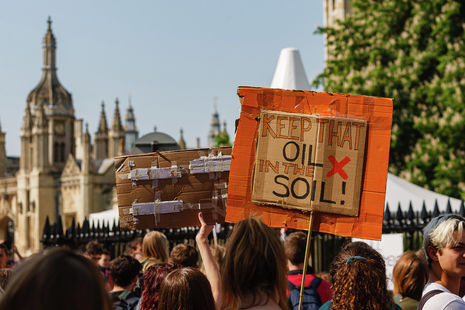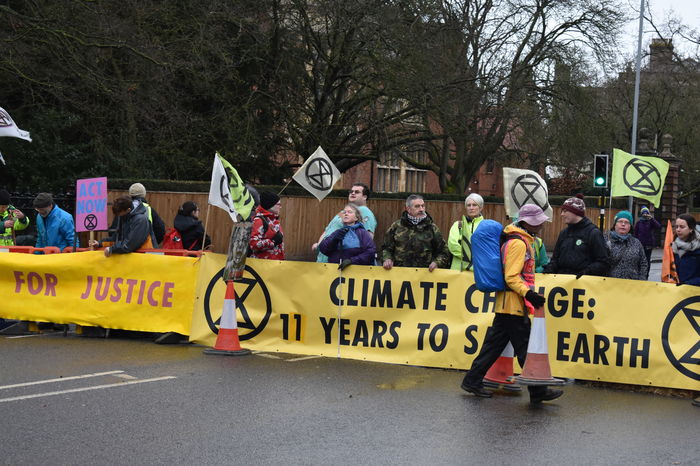Understanding Cambridge: A Tale of Two Cities
“This is a city of remarkable juxtaposition”, writes Alex Jacob

Midday, Market Square: A student protest ruptures the peaceful tranquillity of normality that has, until now, overtaken the city. Eyes are drawn to smoky, bio-luminescent trails from flares; ears strain carefully to hear the wording of the cries (‘Divest, Disarm, Decolonise!’), and for a few seconds, this city of busy minds, bustling bodies and purposeful endeavours grinds to a halt. People pause, listen and contemplate.
But not quite everyone. A select few look up briefly to locate the source of the cries, then back down to their feet. Here and there, the many homeless people of Cambridge appear to contemplate the protesting students with a kind of bemused detachment, bordering on disinterest.
“Doing good or making change involves being in a position to do good”
This article isn’t about student protests, or divestment. It isn’t even about the homeless. It’s about something more imprecise – my observations. What I hope to illustrate is that Cambridge, possibly more than any other place I’ve been to, is an area of remarkable contrast.
Observing the homeless, who in turn observed the protests, led me to an unexpected observation. All of these issues about which many of us feel so passionately – relinquishing the university’s interests in fossil fuels, disarming, and the decolonisation of the syllabus – they are all grand, long-term and laudable concerns, and concerns which, it seemed to me, were, for obvious reasons, not shared by the homeless.
Why do I draw attention to this juxtaposition? Certainly not to devalue or denigrate any of the issues (which I believe are immediate and pertinent concerns), but to establish a distinction between immediacy of interest, and long-term interest. Struck by the incongruity of the worldliness of these protests being paralleled with the interests of the homeless, I was led to consider them as symptomatic of a wider sense of contrast within Cambridge in general.
“Often, it can feel like we’re living in two cities at once, with a very different set of attached associations.”
In this city of gleaming spires, ancient architecture and inquisitive intellectualism, physical inequality and homelessness is placed even more firmly into contrast with the richness of its setting. Homelessness in Cambridge isn’t necessarily worse than in other cities, but it feels so much more perceptible than elsewhere; the visible presence of the homeless is a consistent reminder of our privilege. That includes the more basic privilege of having a roof over our heads, and the higher privilege of having the capacity, time and resources to fight for causes that we believe in (such as divestment). It’s a privilege that I’m only recently growing to appreciate.
Or, to put it more succinctly, doing good or making change involves being in a position to do good. And that’s a maxim which is exemplified so perfectly in Cambridge of all cities, because it is a city of such contrast and juxtaposition. That’s not to say the same point of contrast isn’t present in other cities – it is – but, for me, it is exemplified and epitomised by Cambridge. The capacity to make significant political or social change is an important one, and an ability that members of the city and University alike pride themselves on. But it is also a privilege that should be recognised.
And that’s not the only way in which the dualistic, dichotomous nature of Cambridge stands out to me. I see it everywhere: in the academic expertise that we are expected to demonstrate, as compared with the impostor syndrome that afflicts so many of us at one time or another. Or, in the comparison of Cambridge to a ‘bubble’ – an apparent isolated and sheltered academic haven, set apart from the ‘outside world’, or from itself by its own reputation. Or, in the juxtaposition of the old and the new – the traditional, and conventional nature of Cambridge’s colleges and fellows so often tugs against an (increasingly student-led) desire for modernisation (as evinced by the disarmament/decolonisation/divestment movement). Or even, something as simple as the good and bad moments; in this city, more than any other, have I (and many others), had the most extreme mixture of highs and lows. As I say, this is a city of remarkable juxtaposition, to which we are all exposed on a daily basis (even if we are not entirely and immediately aware of it).
Often, it can feel like we’re living in two cities at once, with a very different set of attached associations. And although this article offers no (practical) solutions or possibilities of change, labelling and observing this doubleness is, for me, an important step in moving towards an understanding of inequality, privilege, and life in Cambridge.
 News / CUP announces funding scheme for under-represented academics19 December 2025
News / CUP announces funding scheme for under-represented academics19 December 2025 News / SU reluctantly registers controversial women’s soc18 December 2025
News / SU reluctantly registers controversial women’s soc18 December 2025 News / Cambridge welcomes UK rejoining the Erasmus scheme20 December 2025
News / Cambridge welcomes UK rejoining the Erasmus scheme20 December 2025 Features / Should I stay or should I go? Cambridge students and alumni reflect on how their memories stay with them15 December 2025
Features / Should I stay or should I go? Cambridge students and alumni reflect on how their memories stay with them15 December 2025 Film & TV / Timothée Chalamet and the era-fication of film marketing21 December 2025
Film & TV / Timothée Chalamet and the era-fication of film marketing21 December 2025










